Part two of this review is here
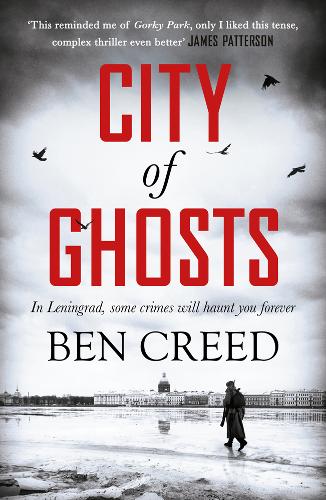
Mutilated bodies found in the snow. That is a fairly standard starting point for a Russia-in-fiction detective novel. Think, of course, of the classic of the genre, Martin Cruz Smith’s Gorky Park (1981). Or more recently, G.D. Abson’s second Natalya Ivanova novel, Black Wolf (2019).
City of Ghosts starts with five mutilated bodies found in the snow. This novel is no shy newcomer sneaking into the back of the Russia-in-fiction incident room hoping not to draw attention to itself.
City of Ghosts is the first of the Revol Rossel thriller series. Set in Leningrad in 1951, as the Stalin era is coming to an end, this is a book that knows its Russia, knows Leningrad, and knows Soviet history. The Stalin era did not limp off the global stage but —so far as its reputation for terror and oppression went— it stayed right on until the end of its road. And Leningrad was a particular target for Stalin’s personal ire.
Within this setting, Ben Creed (the pen-name of the co-writing duo Barney Thompson and Christopher Rickaby) develops a macabre tale brimming over with multiple ideas and intentions.
Writing partnerships are not particularly common. That said, Russia in Fiction covered another co-written thriller in the review before last, namely James Patterson and Adam Hamdy’s Private Moscow. We will also at some point soon review at least one of Larry Bond’s co-written books. (Bond wrote ‘future war’ Russia-in-fiction novels first with Tom Clancy and later with Jerry Mitchell).
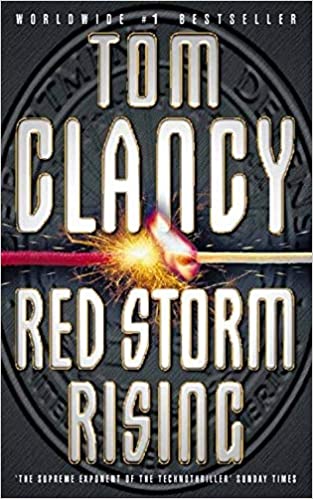

The Thompson-Rickaby partnership that makes up ‘Ben Creed’ presumably gets it pseudonym from the initial letters of the authors’ first names, Barney and Christopher respectively. Though another potentially good reason for the Creed surname comes to mind. Russia-in-Fiction has vague memories of Jonathan Freedland, the Guardian journalist who writes best-selling thrillers under the name Sam Bourne, explaining the relationship between the first letter of a pseudonymous surname, and the positioning of a book on a shelf in a bookshop. Choose a name that will be at eye-level.
City of Ghosts draws on the particular experience of Barney Thompson, who lived for two years in St Petersburg, training as a conductor in its Conservatory. The setting of St Petersburg (known as Leningrad between 1924 and 1991) and the world of Soviet classical music are vividly portrayed; albeit half a century or more before Thompson experienced it.
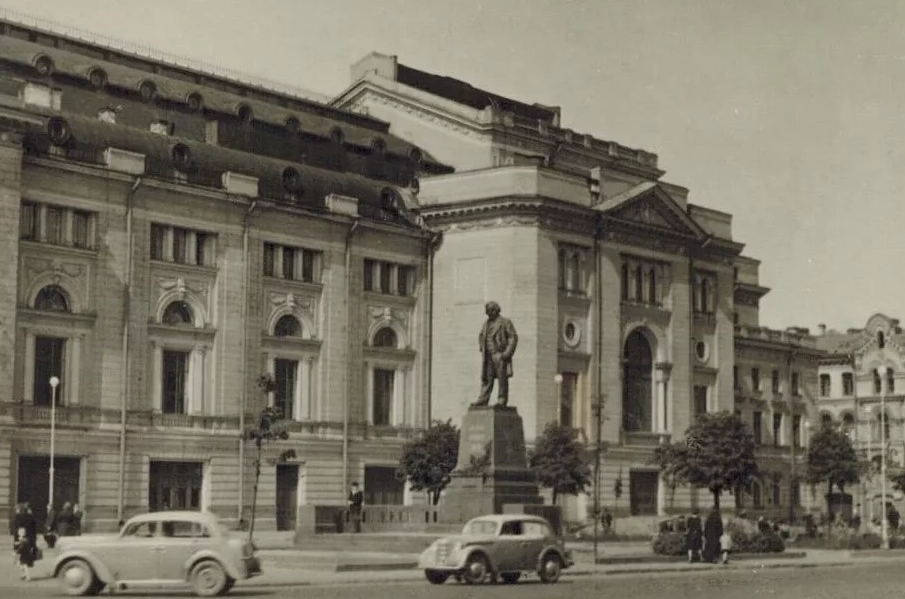
The novel’s hero, Revol Rossel, had been a violinist of great potential in the Leningrad Conservatory, before the brutal attentions of the Stalinist secret police saw his hands mutilated under torture.
By 1951 Rossel is sufficiently rehabilitated —physically and politically— to serve in the Soviet police force, or militsiya.
Of all the many reasons why Revol Rossel, the hero of City of Ghosts, was unfortunate to have been born in the year of revolution, 1917, amongst them was the fact that he was inflicted with one of those ultra-keen Bolshevik-supporting names with which enthusiastic Communists burdened their progeny. Revol is short for Revolution. He could as easily have been called Velior (the initials in Russian from ‘Great October Revolution’). Or Vladlen (‘Vladimir Lenin’). Or Marlen (‘Marx and Lenin’). Or, worst of all, Stalinolen (‘Stalin and Lenin’). Revol? Small mercies …
If writing partnerships are not that common, what is increasingly common in the Russia-in-fiction world is the pre-announced trilogy.
Tom Bradby’s MI6-set Kate Henderson spy-thriller series is, at the time of writing, at the ‘two down, one to go’ stage on the path to trilogy status. (We reviewed Secret Service a few months back). Owen Matthews’s KGB Major Alexander Vasin series began with the superb Black Sun in 2019, and Russia in Fiction is looking forward to Red Traitor, due out in July 2021.
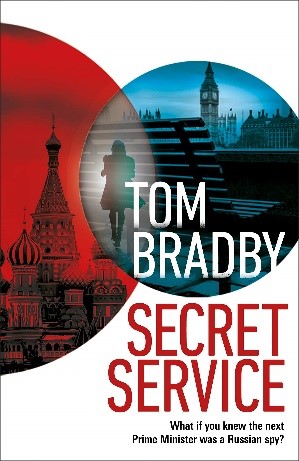
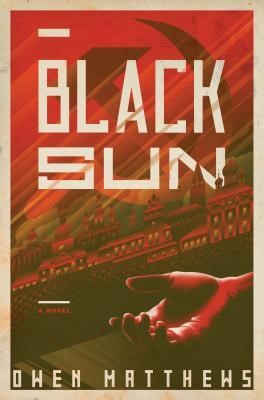
The excellent Henry Porter may possibly go one better when it comes to Russia-in-fiction trilogies. The third in his Paul Samson espionage series is due to be published in the next couple of weeks, but Porter’s Wikipedia page —with no reference to confirm— asserts that this will be a tetralogy.
[Update August 2021. The second in Owen Matthews’s trilogy is reviewed here. The third in Tom Bradby’s and Henry Porter’s trilogies came out in spring 2021 and have both been read and enjoyed, but not reviewed, by Russia in Fiction; hey, we are a ‘stand back and consider Russia in fiction over the decades’ blog, rather than a ‘review every latest Russia-in-fiction book as soon as it comes out’ blog. We did at least mention Bradby’s trilogy-ending book in another review here. And let’s not forget the on-going trilogy by Sarah Armstrong, latest published in May 2021, one more to go, both reviewed on this blog here and here.]
The development of a trilogy can be a tricky business. Ben Creed inserts into City of Ghosts one of those tell-tale unresolved elements that will no doubt make for a satisfying denoument two novels further down the line. It shows commendable forethought, but taking City of Ghosts as a stand-alone story, the occasionally mentioned fact that Revol Rossel remains deeply affected by the unexplained disappearance of his twin sister at the age of 18 in the late 1930s sits a little awkwardly, as it plays no great part in the unfolding narrative of book one out of the proposed three.
Of the pre-announced trilogies mentioned above, the one that the Revol Rossel series has most in common with so far is Owen Matthews’s Alexander Vasin series.
Like Creed’s, Matthews’s trilogy is a detective series set in the Soviet era. And like Matthews, Creed combines superb knowledge of Russia with a well-crafted, page-turning plot.
Whilst both are set in the Soviet past, Matthews situates Black Sun in the early 1960s and draws on the changes occurring in a post-Stalin USSR. But there is nothing post-Stalin about City of Ghosts, with its 1951 setting.
1951 is just a couple of years before the dictator’s death, but Stalin did not go quietly in terms of repression.
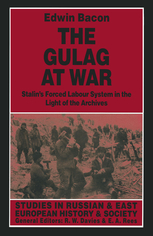
There were more prisoners in the Gulag when Stalin died in 1953 than there were during the Great Terror of the late 1930s (as a glance at The Gulag At War will confirm).
Stalin’s brutal paranoia was particularly demonstrated in relation to Leningrad. The ‘Leningrad Affair’ of the late 1940s and early 1950s saw the arrest and execution of that city’s wartime leadership, seen by the Soviet leader as a threat to his power. In Creed’s understated —and prepositionally dodgy— phrasing, Leningrad was
a city for which Stalin was known to harbour misgivings
City of ghosts, chapter one
As Revol Rossel investigates the quintuple murder with which City of Ghosts opens, that staple of Russia-in-fiction detective novels appears; the relationship between the police and the security services. Why, wonders policeman Rossel, is this crime being left to him and his militsiya colleagues when it seems to be in the political realm usually under the purview of the secret police?
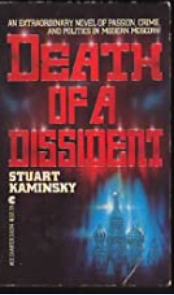
(The same question that is asked by Inspector Rostnikov in Death of a Dissident, the first of Stuart Kaminsky’s 16-novel, three-decade-long, Russian detective series).
Rossel gradually realises that of course, his involvement is no accident, and the case is closely connected with his past as a student in the Leningrad Conservatory.
Creed’s eye for the reality of Stalinist power delights. One of the corpses is found wearing the uniform of the Chekists (Soviet secret police). Revol Rossel begins to believe that the police have been lumbered with investigating the horrific five-fold murder because somehow the Chekists are involved. Rossel’s captain thinks that this plainly cannot be the case
‘But your explanation is that the Chekists did this, Revol? Yet why would they murder one of their own?’
On the face of it, this was a fantastically stupid question. The Chekists —as OGPU, as NKVD, as MGB— had spent years liquidating each other as enthusiastically as they had liquidated spies, saboteurs, fascists, writers, priests, kulaks, Trotskyites, musicians, generals, doctors, coppers, anyone who spoke a foreign language or who had been abroad, any anti-Soviet elements in general.
city of ghosts, chapter three
As its plot plays out, City of Ghosts portrays the all-enveloping brutality of power in the hands of the state in that period. But what makes Creed’s debut novel stand out is the level of unique detail into the specific world of Soviet cultural politics as seen through Leningrad’s classical music scene.
Part two of this review is here